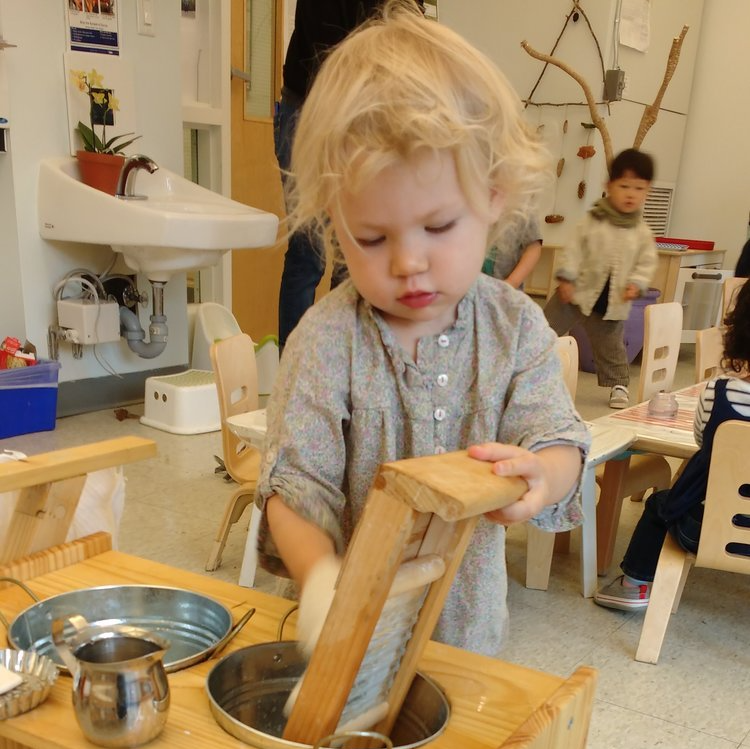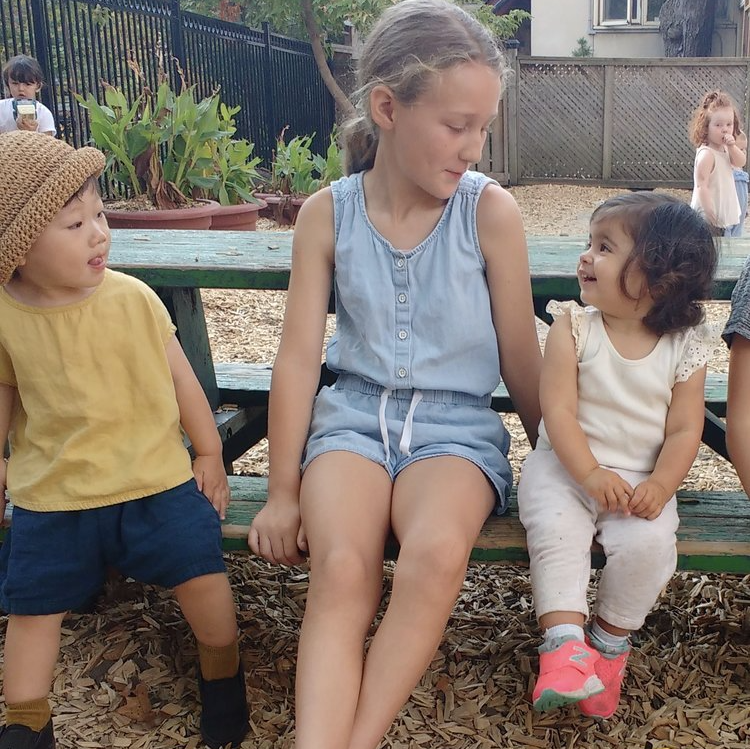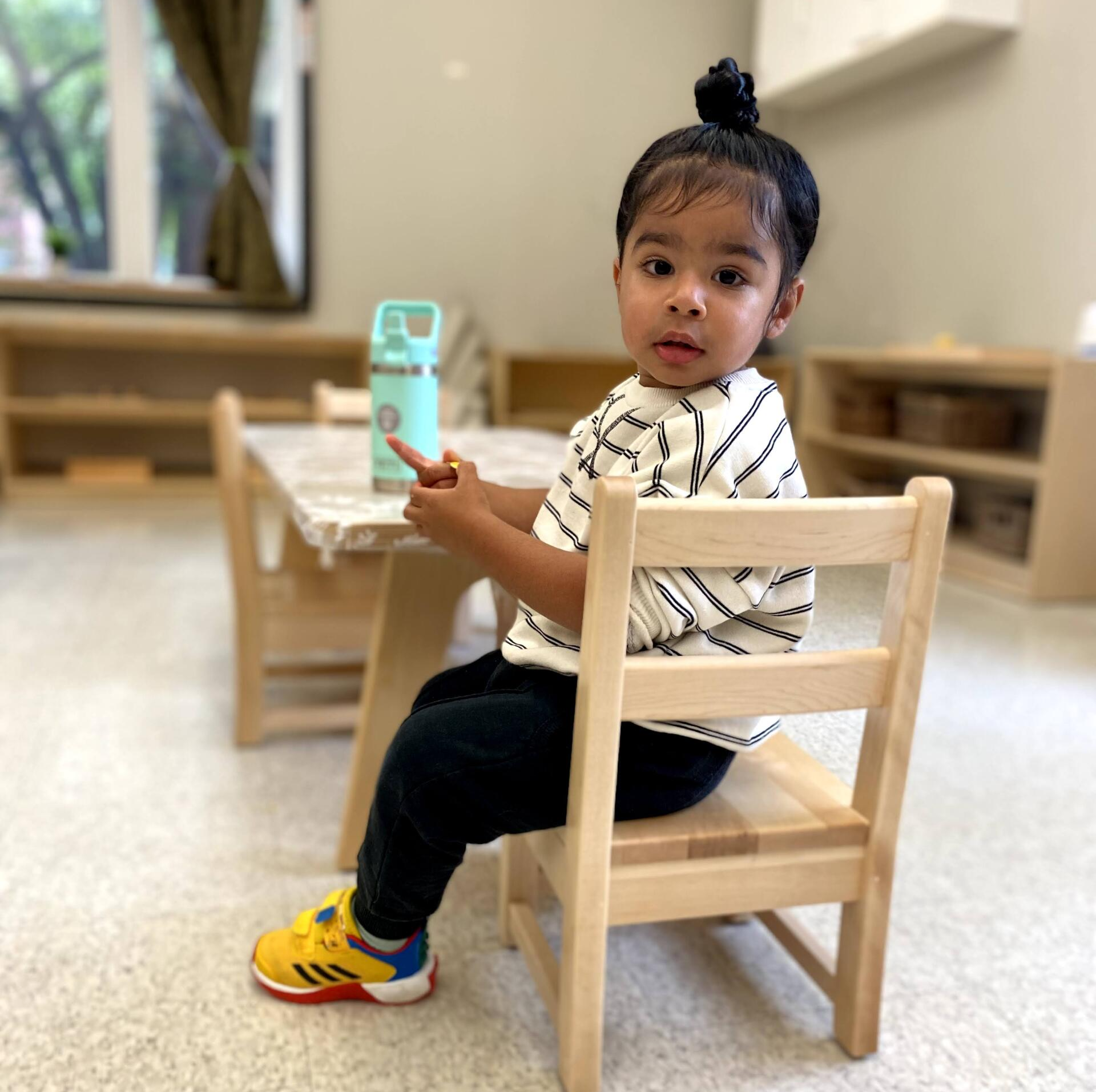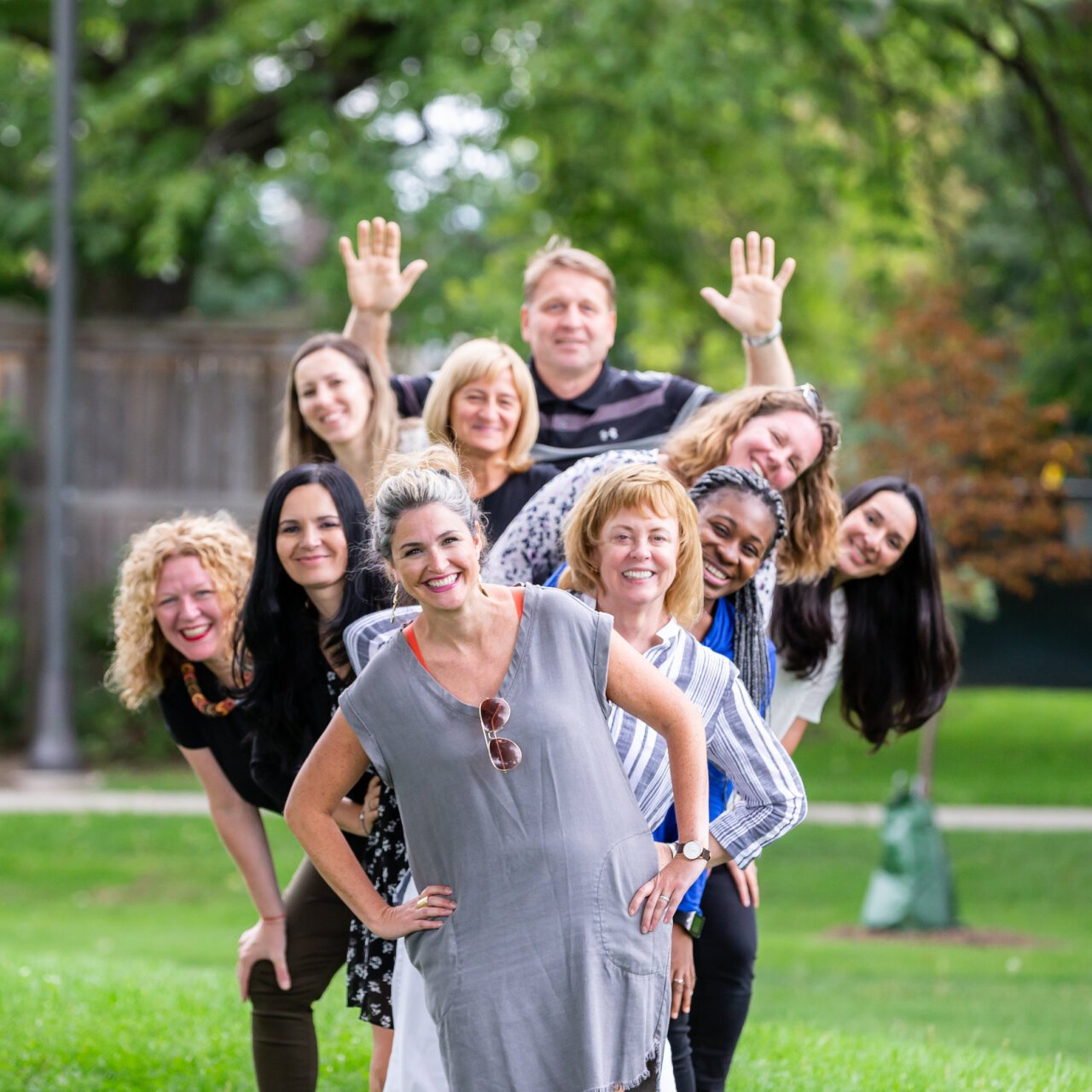Young People’s Community.
18 - 36 months old
“At the beginning of his life the individual can accomplish wonders – without effort and quite unconsciously.”
- Maria Montessori
Way of Learning.
The goal of the toddler program is to facilitate the development of independent, confident and peaceful individuals who love to learn.
Our teachers and assistants support and guide children to build independence. This is accomplished through repetition and patience as children work to dress themselves, use real dishes, and manage stairs. They also build emotional and social awareness through clear naming of emotions, suggestions for conflict management, and kind assistance.
Independent and confident learning is developed by creating an environment with purposeful exercises and materials which cater to the child's needs for personal growth and development.
Each piece of work falls under one of the following curriculum areas: Language, Sensorial Exploration, and Practical Life. From wooden tongs and pom-poms to small glass jugs and bowls to baskets of animals, each piece of material has an associated sequential task. Children are introduced to tasks of increasing difficulty as their motor and language skills develop. Work with these materials promote self-awareness, community life, independence, and a strong sense of purpose.
The completion of the work itself provides positive feedback to the child that they have accomplished the task themselves.
The toddler program is organized into four main areas: Movement, Sensorial, Practical Life, and Language.
School Work.
MOVEMENT
Essential to brain development and an understanding of space and physical body, the movement specific aspects of the environment include stairs and a platform to climb; floor mats on which to roll and stretch; a push cart to practice walking and core strength; and increasingly challenging materials to explore visual coordination including puzzles, blocks, large beads and string.
SENSORY
Through exploration with materials to isolate specific sensory concepts, such as size, colour, shape, sound, and texture children begin to understand their world and the physical properties that assist in categorization.
PRACTICAL LIFE
Central to the Montessori philosophy is the development of skills related to Practical Life - children are deeply interested in the activities that surround them, including caring for their environments. The YPC practical life environment deliberately provides materials for sweeping, serving snack, washing clothing and dishes, arranging shelves, caring for plants, and even repairing broken items.
LANGUAGE
Children develop language so organically yet in observable stages and gains. At this age, language enrichment is facilitated through naming exercises, books, art and music, with a focus on vocabulary.






